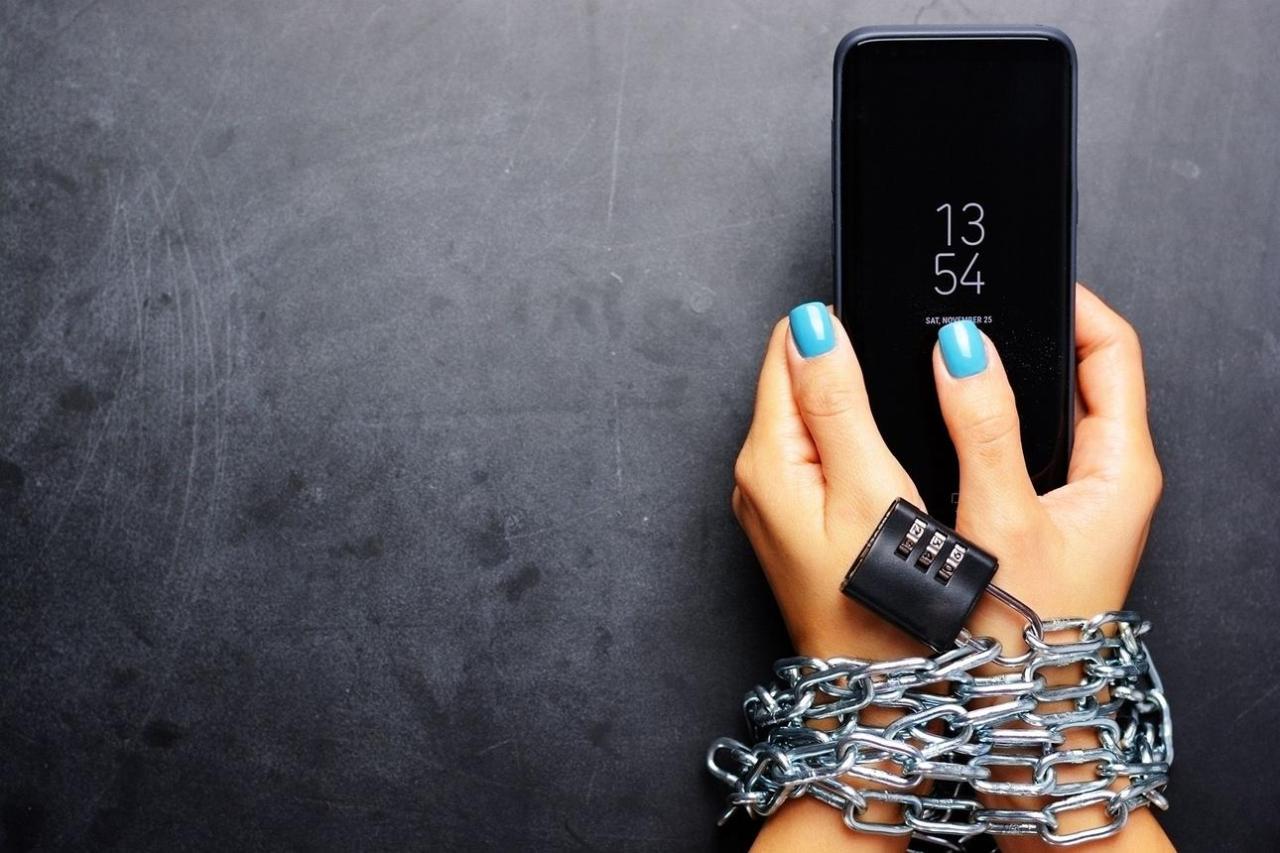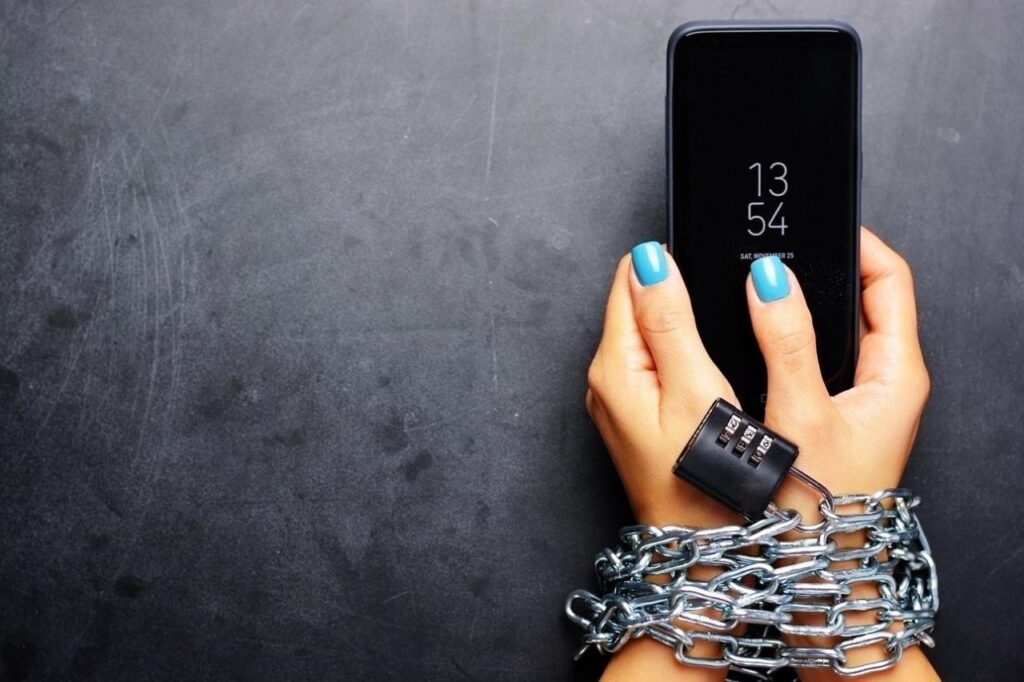Mobile Game Addiction: Signs and Solutions delves into the complexities of excessive gaming, exploring the psychological factors, behavioral patterns, and consequences associated with this growing phenomenon. The ubiquity of mobile gaming, coupled with the addictive design features of many apps, has led to an alarming rise in individuals struggling to control their gaming habits.
This article will examine the common signs of mobile game addiction, including changes in behavior, mood, and relationships. We will delve into the underlying causes, such as the design features of games, social influences, and individual vulnerabilities. Furthermore, we will explore effective strategies for preventing and intervening in mobile game addiction, emphasizing the importance of establishing healthy gaming habits and seeking professional help when necessary.
Discover more by delving into Building a Mobile Gaming Setup at Home further.
Understanding Mobile Game Addiction: Mobile Game Addiction: Signs And Solutions
Mobile game addiction, a relatively new phenomenon, has become increasingly prevalent in recent years. It involves excessive and compulsive engagement with mobile games, leading to significant negative consequences in various aspects of an individual’s life. Understanding the characteristics, contributing factors, and impact of mobile game addiction is crucial for addressing this growing issue.
Examine how The Future of Mobile Connectivity can boost performance in your area.
Defining Mobile Game Addiction and Its Characteristics
Mobile game addiction, also known as gaming disorder, is characterized by a persistent and recurring pattern of excessive gaming behavior that leads to significant impairment or distress. It involves a loss of control over gaming, prioritizing gaming over other important activities, and experiencing negative consequences as a result of excessive gaming.
You also can understand valuable knowledge by exploring The Future of Mobile Entertainment.
- Loss of Control:Individuals with mobile game addiction struggle to limit their gaming time, often finding themselves playing for hours on end despite intentions to stop.
- Withdrawal Symptoms:When prevented from gaming, individuals may experience symptoms like irritability, restlessness, and difficulty concentrating.
- Neglect of Responsibilities:Gaming takes precedence over work, school, family, and other essential obligations, leading to neglect and potential consequences.
- Tolerance:Over time, individuals may need to spend more and more time gaming to achieve the same level of satisfaction, indicating a developing tolerance.
Psychological Factors Contributing to Addiction
Various psychological factors contribute to the development of mobile game addiction. These factors can make individuals more susceptible to becoming addicted to mobile games:
- Personality Traits:Individuals with certain personality traits, such as impulsivity, sensation-seeking, and low self-esteem, may be more prone to addiction.
- Stress and Anxiety:Mobile games can provide an escape from stress and anxiety, offering temporary relief and a sense of control. This can lead to reliance on gaming as a coping mechanism.
- Social Isolation:For individuals experiencing social isolation or loneliness, mobile games can offer a sense of connection and community through online interactions.
- Reward System:Mobile games are often designed with features that stimulate the brain’s reward system, such as dopamine release associated with achieving goals or receiving rewards.
Comparing and Contrasting Mobile Game Addiction with Other Forms of Addiction
Mobile game addiction shares similarities with other forms of addiction, such as substance abuse, gambling, and internet addiction. All these addictions involve compulsive behaviors, loss of control, and negative consequences. However, mobile game addiction has some unique characteristics:
- Accessibility:Mobile games are readily available and accessible at any time and place, making it easier to engage in excessive gaming.
- Social Integration:Mobile games often involve social interactions and online communities, which can further reinforce addictive behaviors.
- Microtransactions:The integration of microtransactions in many mobile games can contribute to financial issues and exacerbate addiction, as individuals may spend significant amounts of money on in-game purchases.
Signs of Mobile Game Addiction
Recognizing the signs of mobile game addiction is crucial for early intervention and seeking help. Excessive gaming behavior can manifest in various ways, impacting an individual’s emotional, physical, and social well-being.
Enhance your insight with the methods and methods of The Future of Mobile Game Development.
Behavioral Signs of Mobile Game Addiction
Behavioral changes are often the most noticeable indicators of mobile game addiction. These changes can include:
- Spending Excessive Time Gaming:Individuals may spend hours on end playing mobile games, neglecting other responsibilities and activities.
- Prioritizing Gaming Over Other Activities:Gaming takes precedence over work, school, family, and social commitments.
- Lying About Gaming Time:Individuals may hide or downplay the extent of their gaming to avoid confrontation or judgment.
- Neglecting Personal Hygiene and Appearance:Excessive gaming can lead to neglect of personal hygiene and appearance, as individuals prioritize gaming over basic self-care.
- Experiencing Withdrawal Symptoms:When prevented from gaming, individuals may experience irritability, restlessness, anxiety, and difficulty concentrating.
Emotional and Physical Effects of Excessive Gaming
Excessive mobile gaming can have significant emotional and physical consequences. These effects can include:
- Mood Swings and Irritability:Gaming can lead to mood swings, irritability, and difficulty controlling emotions.
- Anxiety and Depression:Excessive gaming can contribute to feelings of anxiety, depression, and social isolation.
- Sleep Deprivation:Spending long hours gaming can disrupt sleep patterns, leading to fatigue and difficulty concentrating during the day.
- Eye Strain and Headaches:Staring at screens for extended periods can cause eye strain, headaches, and dry eyes.
- Physical Inactivity:Excessive gaming can lead to a sedentary lifestyle, increasing the risk of obesity, cardiovascular disease, and other health problems.
Impact of Addiction on Personal Relationships and Social Life
Mobile game addiction can have a detrimental impact on personal relationships and social life. This impact can include:
- Strained Relationships:Excessive gaming can lead to strained relationships with family, friends, and romantic partners, as individuals prioritize gaming over spending time with loved ones.
- Social Isolation:Individuals may withdraw from social activities and interactions, preferring to spend time gaming alone.
- Conflicts and Arguments:Disputes and arguments may arise over gaming time, leading to tension and resentment.
- Neglect of Family and Friends:Individuals may neglect their responsibilities and commitments to family and friends due to excessive gaming.
Causes of Mobile Game Addiction

The development of mobile game addiction is influenced by a complex interplay of factors, including game design features, social influences, and individual vulnerabilities. Understanding these causes is essential for developing effective prevention and intervention strategies.
Design Features Contributing to Addiction
Mobile game designers often employ various techniques to increase engagement and make their games more addictive. These features can include:
- Reward Systems:Games often reward players with points, badges, and virtual currency for completing tasks or achieving goals. These rewards trigger the brain’s reward system, reinforcing addictive behaviors.
- Randomized Rewards:Many games incorporate elements of chance, such as loot boxes or random drops, which create a sense of anticipation and excitement, encouraging players to keep playing in hopes of receiving valuable rewards.
- Social Features:Games often include social features that encourage players to connect and compete with others, fostering a sense of community and competition.
- Microtransactions:The integration of microtransactions allows players to purchase in-game items, such as virtual currency, power-ups, or cosmetic items. This can lead to financial issues and exacerbate addiction, as individuals may spend significant amounts of money on in-game purchases.
Role of Social Media and Online Communities
Social media and online communities play a significant role in fostering mobile game addiction. These platforms can:
- Promote and Advertise Games:Social media platforms are used extensively for advertising and promoting mobile games, increasing their visibility and exposure to potential players.
- Create a Sense of Community:Online communities centered around specific mobile games provide a platform for players to connect, share tips, and compete with one another. This sense of community can reinforce addictive behaviors.
- Fuel Competition and Comparison:Social media and online communities often foster a culture of competition and comparison, encouraging players to strive for higher scores, better rankings, and more valuable in-game items.
Influence of Individual Vulnerabilities and Personality Traits
Individual vulnerabilities and personality traits can also play a role in the development of mobile game addiction. These factors include:
- Impulsivity:Individuals with high impulsivity may be more prone to engaging in risky behaviors, such as excessive gaming.
- Sensation-Seeking:Individuals who seek out new and exciting experiences may find the stimulation and rewards of mobile games highly appealing.
- Low Self-Esteem:Individuals with low self-esteem may find solace and validation in achieving success and recognition within the virtual world of mobile games.
- Mental Health Conditions:Individuals with underlying mental health conditions, such as anxiety or depression, may be more susceptible to addiction as they seek escape from their problems.
Consequences of Mobile Game Addiction
Mobile game addiction can have far-reaching consequences, impacting various aspects of an individual’s life. These consequences can be academic, professional, financial, and social, and can also have serious implications for physical and mental health.
Get the entire information you require about The Benefits of Mobile Gaming on this page.
Academic, Professional, and Financial Consequences
Mobile game addiction can negatively affect academic performance, career prospects, and financial stability. These consequences can include:
- Decreased Academic Performance:Excessive gaming can lead to decreased concentration, reduced motivation, and poor time management skills, resulting in lower grades and academic difficulties.
- Job Loss or Difficulty Finding Employment:Addiction can lead to absenteeism, tardiness, and decreased productivity, making it difficult to maintain employment or find new opportunities.
- Financial Difficulties:Excessive spending on in-game purchases, neglect of financial responsibilities, and loss of income due to addiction can lead to financial strain and debt.
Health Risks Associated with Excessive Gaming
Excessive mobile gaming can pose various health risks, including:
- Sleep Deprivation:Spending long hours gaming can disrupt sleep patterns, leading to fatigue, impaired cognitive function, and increased risk of health problems.
- Eye Strain and Headaches:Staring at screens for extended periods can cause eye strain, headaches, and dry eyes.
- Physical Inactivity:Excessive gaming can lead to a sedentary lifestyle, increasing the risk of obesity, cardiovascular disease, and other health problems.
- Repetitive Strain Injuries:Repetitive movements involved in gaming can lead to carpal tunnel syndrome, tendonitis, and other repetitive strain injuries.
Emotional and Mental Health Consequences
Mobile game addiction can have significant emotional and mental health consequences, including:
- Anxiety and Depression:Excessive gaming can contribute to feelings of anxiety, depression, and social isolation.
- Mood Swings and Irritability:Gaming can lead to mood swings, irritability, and difficulty controlling emotions.
- Low Self-Esteem:Individuals may experience a decline in self-esteem due to their inability to control their gaming habits and the negative consequences it brings.
- Social Isolation:Addiction can lead to withdrawal from social activities and interactions, resulting in loneliness and a lack of social support.
Strategies for Prevention and Intervention
Preventing and intervening in mobile game addiction requires a multifaceted approach involving parents, educators, individuals, and professionals. By implementing strategies that promote healthy gaming habits and address the underlying causes of addiction, we can help individuals avoid or overcome this challenging issue.
For descriptions on additional topics like The Role of AR and VR in Mobile Gaming, please visit the available The Role of AR and VR in Mobile Gaming.
Preventing Mobile Game Addiction in Children and Adolescents
Parents and educators play a crucial role in preventing mobile game addiction in children and adolescents. Strategies for prevention include:
- Setting Limits and Establishing Boundaries:Establish clear rules and guidelines regarding screen time, game content, and in-app purchases.
- Promoting Alternative Activities:Encourage children and adolescents to engage in other activities, such as sports, hobbies, and social interactions, to foster a balanced lifestyle.
- Open Communication:Engage in open and honest conversations with children and adolescents about the potential risks of excessive gaming and the importance of healthy habits.
- Modeling Healthy Behaviors:Parents and educators should model healthy digital habits by setting their own limits on screen time and engaging in other activities.
Managing Gaming Habits and Avoiding Addiction
Individuals can take steps to manage their gaming habits and avoid addiction. Strategies include:
- Setting Time Limits:Establish specific time limits for gaming and stick to them consistently.
- Tracking Gaming Time:Use apps or tools to track gaming time and identify patterns of excessive use.
- Taking Breaks:Regularly take breaks from gaming to engage in other activities, such as exercise, social interaction, or hobbies.
- Identifying Triggers:Recognize the situations or emotions that trigger excessive gaming and develop coping mechanisms to manage them.
- Seeking Support:Reach out to family, friends, or support groups for guidance and encouragement.
Role of Therapy and Support Groups
Therapy and support groups can play a vital role in addressing mobile game addiction. These resources can provide:
- Cognitive Behavioral Therapy (CBT):CBT can help individuals identify and modify negative thought patterns and behaviors associated with addiction.
- Motivational Interviewing:Motivational interviewing techniques can help individuals increase their motivation to change their gaming habits.
- Support Groups:Support groups provide a safe and supportive environment for individuals to connect with others who share similar experiences and challenges.
Finding a Balance: Healthy Gaming Practices
Mobile gaming can be a source of entertainment, relaxation, and social connection when practiced responsibly. Establishing healthy gaming habits and finding a balance between gaming and other aspects of life is crucial for well-being.
Obtain recommendations related to Investing in the Future of Android Phones that can assist you today.
Healthy Gaming Habits and Tips for Responsible Mobile Gaming
| Healthy Gaming Habit | Tips for Responsible Gaming |
|---|---|
| Setting Time Limits | Establish specific time limits for gaming and stick to them consistently. Use timers or apps to track gaming time. |
| Taking Breaks | Regularly take breaks from gaming to engage in other activities, such as exercise, social interaction, or hobbies. |
| Prioritizing Responsibilities | Ensure gaming does not interfere with work, school, family, or other essential obligations. |
| Avoiding Excessive Spending | Set a budget for in-game purchases and stick to it. Avoid impulsive spending on virtual items. |
| Monitoring Content | Be mindful of the content of the games you play and choose games that align with your values and interests. |
| Engaging in Social Interaction | Use gaming as an opportunity to connect with friends and family, but also prioritize real-world social interactions. |
Setting Limits and Establishing Boundaries, Mobile Game Addiction: Signs and Solutions
Setting clear limits and boundaries is essential for healthy gaming practices. This includes:
- Designated Gaming Time:Establish specific times for gaming and stick to them consistently.
- Gaming-Free Zones:Create designated areas in your home where gaming is not allowed, such as bedrooms or dining areas.
- Digital Detox:Take regular breaks from all digital devices, including mobile games, to recharge and engage in other activities.
Alternative Activities and Hobbies
Engaging in alternative activities and hobbies can help promote well-being and balance in life. These activities can include:
- Exercise and Physical Activity:Engage in regular exercise to improve physical health and mental well-being.
- Creative Pursuits:Explore creative hobbies such as painting, writing, music, or photography.
- Social Interaction:Spend time with friends and family, engage in social activities, and cultivate meaningful relationships.
- Learning and Personal Growth:Pursue new knowledge and skills through reading, online courses, or workshops.
- Nature and Outdoor Activities:Spend time outdoors, connect with nature, and enjoy the benefits of fresh air and sunlight.
Wrap-Up
In conclusion, mobile game addiction is a multifaceted issue with significant consequences for individuals, families, and society. By understanding the signs, causes, and consequences of this addiction, we can equip ourselves with the knowledge and tools to prevent it, manage it, and find a healthy balance in our digital lives.
Remember, seeking help is a sign of strength, and there are resources available to support individuals struggling with mobile game addiction.
Learn about more about the process of Best Android Phones for Gaming in 2024 in the field.
Questions Often Asked
What are some signs of mobile game addiction in children?
Find out about how Gaming Accessories for Android Phones can deliver the best answers for your issues.
Children with mobile game addiction may show signs like neglecting schoolwork, withdrawing from social activities, becoming irritable when unable to play, and lying about their gaming time.
Check How to Optimize Your Phone for Gaming to inspect complete evaluations and testimonials from users.
How can I limit my own mobile game usage?
Start by setting daily time limits, using app timers, and finding alternative activities that bring you joy. Consider replacing gaming time with exercise, social interactions, or hobbies.
Are there any specific games that are more addictive than others?
While no game is inherently addictive, certain game design features, such as reward systems, social competition, and endless progression, can contribute to addictive behavior. It’s important to be mindful of these features and set boundaries.












